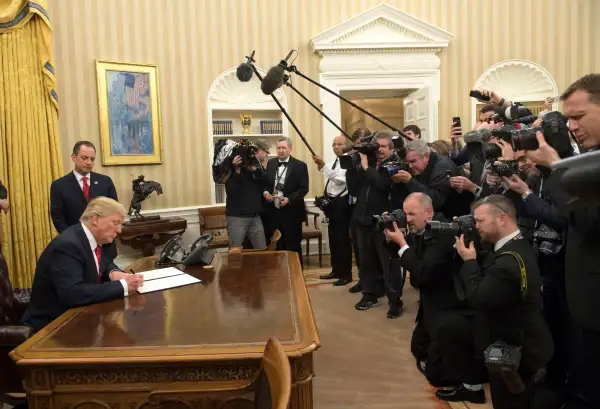What Trump's Obamacare Executive Order Means

Hours after being sworn in as the 45th president of the United States, Donald Trump signed an executive order allowing the federal government to start dismantling the Affordable Care Act.
The order offers few specifics, but in a few paragraphs, it does give agencies affected by the ACA the authority to waive or delay implementation of any part of the law that would "impose a fiscal burden on any State or a cost, fee, tax, penalty, or regulatory burden" on individuals, insurers, drug companies, etc.
It also promotes the creation of a system to allow the sale of insurance across state lines, something Republicans have said will increase competition in the health care market.
Trump cannot fully repeal the law by executive order. And Friday night's order offers no concrete policies or rules, so it's impossible to say exactly what will happen, or on what time frame. Larry Levitt, vice president at the Kaiser Family Foundation, a nonprofit focused on healthcare policy, tweeted that the biggest change could be Trump's encouragement of waivers to bypass the individual mandate.
In an interview with Vox, Levitt said the executive order was a symbolic indication that Trump isn't waiting on Congress "to start making big change."
"It directs federal agencies to start taking steps to use their administrative authority to unwind the ACA in all sorts of ways," he said. This could include things like not enforcing the employer mandate, and cutting taxes that were imposed on the wealthy to cover some of Obamacare's costs.
Republicans, who control the House and the Senate, have already started the budget process necessary to repeal parts of former president Barack Obama's signature law.
They have introduced no replacement plan yet, however—leaving more than 20 million people who have received health insurance as a result of the ACA to wonder what will happen to their coverage in the future.
